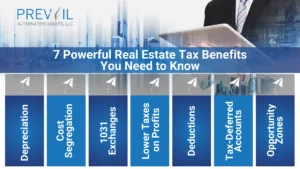One of the most frequently talked about retirement funds is the 401(k), and while they do have their place in the investment portfolios of many investors, many new investors still find themselves asking “should I invest in a 401(k)?” While the answer in most cases will likely be a yes, there are some situations where it may not be ideal. Let’s dive into the debate over whether you should put your money into a 401(k) in general.
What Is A 401(k)?
A 401(k) is a retirement plan that is often provided to new employees at many companies, and they offer an incredibly easy way to not only invest in company stock but also in other securities for the long term. They were originally created to supplement company pensions, but since most companies no longer offer pension plans, the 401(k) is left as the primary method for retirement investing for most new employees.
They are known for being incredibly simple to begin using and are a popular way to put your savings in a safe interest-bearing plan. This can be a great way to save for those who simply cannot discipline themselves into saving from each check, since you can automate your investing from your pre-tax income.
Should I Invest In a 401(k)?
In most cases, the answer is going to be yes, at least in the beginning. Many companies will match your 401(k) contributions up to a certain threshold. Sometimes this company matching is dollar-for-dollar, which means you can effectively double your investment. While the match is usually only for the first $1,000-$5,000 you contribute, it’s essentially free money.
Once you’ve hit the contribution limit for any company, you can continue to contribute if you don’t see yourself needing that money for many years. One of the main drawbacks to putting your money in a 401(k) is that you significantly reduce the liquidity of those funds, and if you do withdraw them early you could end up paying significant penalties and taxes on them. You should also consider your personal opinion on what taxes are going to apply to your stock situation.
Should I Invest In A 401(k) If I’m Self-Employed?
This is a little trickier question whose answer may depend on what you make and how much liquidity you need in the next few years. Remember that putting a portion of your income into a 401(k) will significantly reduce its liquidity until you’re at least 59 ½, and if you do pull anything out early, you will pay higher taxes and potentially other financial penalties.
Remember To Stay Diversified
Just like any other investment portfolio, your 401(k) should have a large degree of diversification to help insulate you from sector or market swings. If you invest in stock for the company you work for, limit it to about 10% of your total portfolio, and be sure you understand any vesting requirements if you’re considering leaving for another company.
If You’re Still On The Fence About A 401(k) Talk It Over With An Advisor
Devoting a portion of your income to a retirement plan can be a big decision and with the potential impact it can have on your future, it’s not a decision to be made lightly or without considering the full ramifications. If you’re still asking yourself “should I invest in a 401(k)”, then be sure to reach out to our team, and talk about your financial future with a professional investment strategist and wealth management advisor.


















